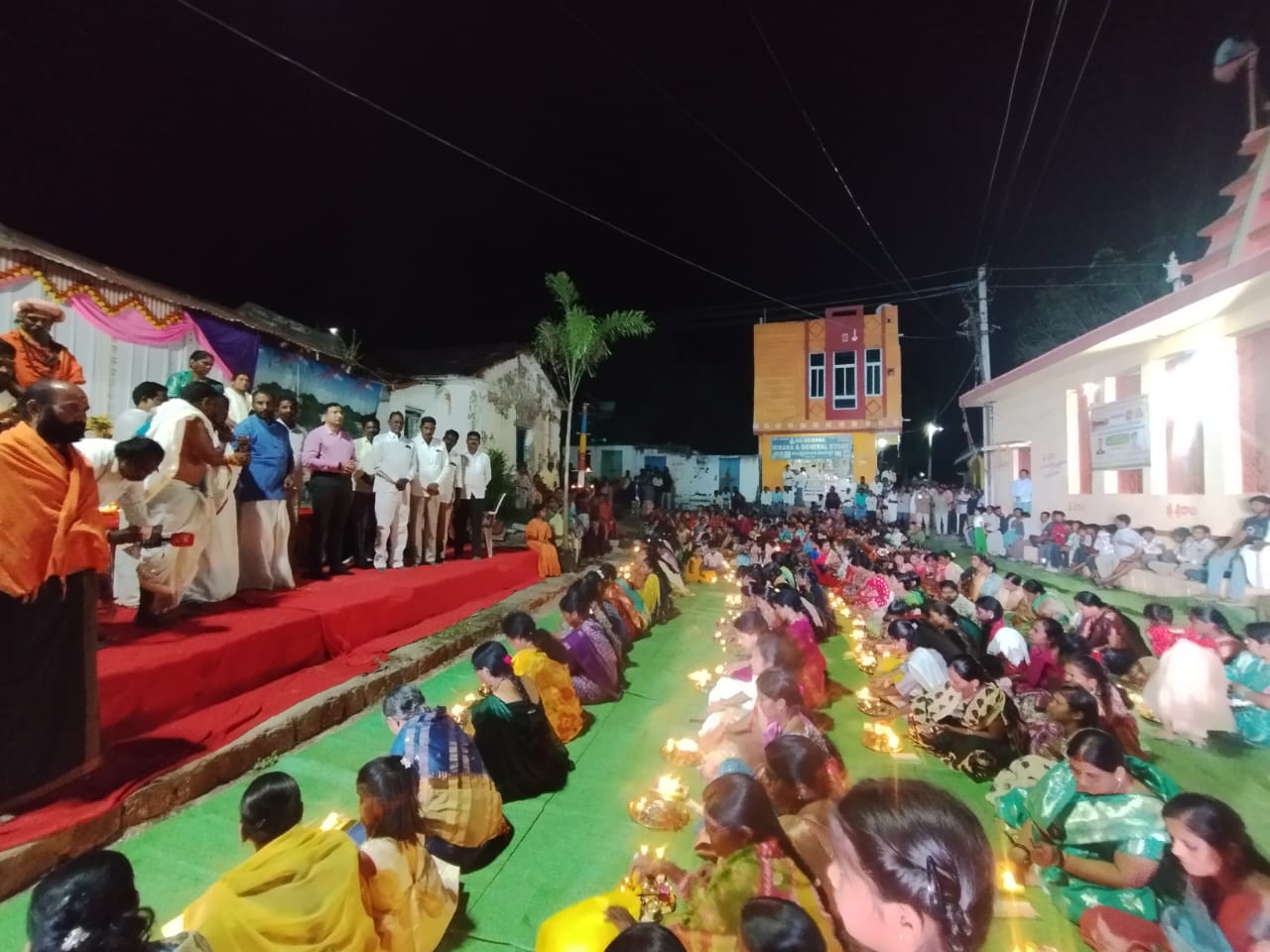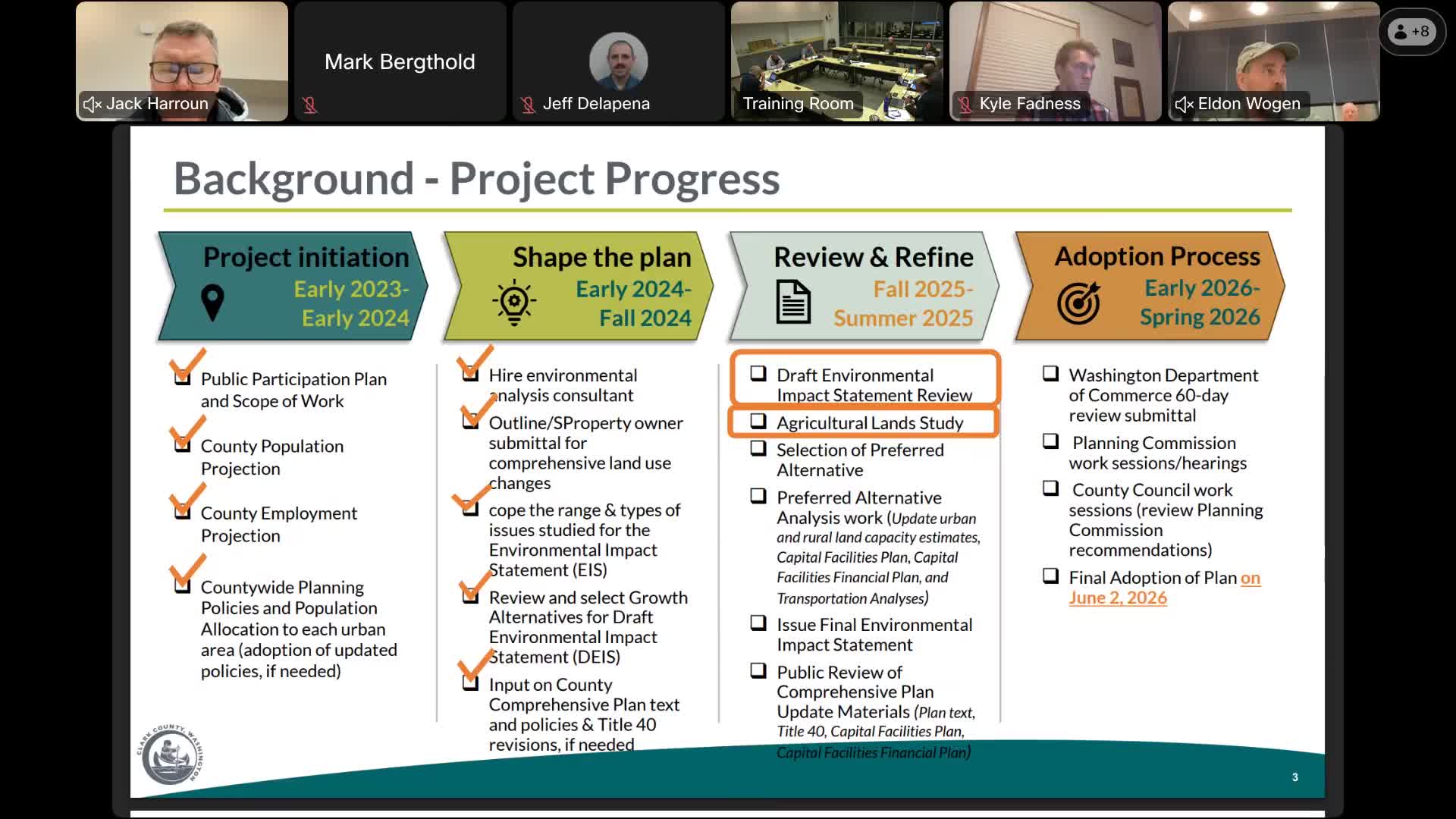Lawful Incarceration Doesn’t Suspend Right To Human Dignity: SC Directs TN Jail Authorities To Identify Prisoners With Disability – ETV Bharat

Supreme Court Report on the Rights of Prisoners with Disabilities
Upholding Human Dignity and Aligning with Global Development Goals
A recent Supreme Court judgment has mandated comprehensive reforms within Tamil Nadu’s prison system to protect the rights and dignity of inmates with disabilities. The ruling underscores that lawful incarceration does not suspend fundamental human rights and highlights the state’s constitutional role as a custodian. The Court’s directives are intrinsically linked to the fulfilment of several United Nations Sustainable Development Goals (SDGs), positioning prison reform as a critical component of national development and human rights adherence.
Alignment with the Sustainable Development Goals (SDGs)
SDG 16: Peace, Justice, and Strong Institutions
- The judgment reinforces SDG 16 by demanding the creation of effective, accountable, and inclusive institutions within the justice system.
- It promotes the rule of law and ensures equal access to justice for all by specifically addressing the systemic barriers faced by prisoners with disabilities.
- The directive to amend the State Prison Manual to conform with the Rights of Persons with Disabilities (RPwD) Act, 2016, and the UN Convention on the Rights of Persons with Disabilities (UNCRPD) directly contributes to strengthening institutional frameworks.
SDG 10: Reduced Inequalities
- The ruling is a decisive action towards achieving SDG 10 by targeting the profound inequalities faced by persons with disabilities, a highly marginalized group.
- By mandating “reasonable accommodation” and condemning discriminatory practices, the Court champions the social inclusion of disabled individuals, even within detention facilities.
- It seeks to ensure equal opportunity and dismantle the structural and social barriers that magnify suffering for this vulnerable population.
SDG 3: Good Health and Well-being
- The verdict strongly supports SDG 3 by prioritizing the health and well-being of inmates.
- It mandates that prisoners with disabilities receive healthcare services, including physiotherapy and psychotherapy, equivalent to standards available in the community, reinforcing the principle of universal health coverage.
- The requirement for nutritious and medically appropriate diets tailored to specific health needs further ensures that the fundamental right to health is upheld.
SDG 11: Sustainable Cities and Communities
- While focused on prisons, the judgment’s principles align with SDG 11’s goal of ensuring universal access to safe and inclusive spaces.
- The mandate for creating disability-friendly infrastructure, such as ramps, accessible toilets, and wheelchair-friendly spaces, applies the concept of universal design to correctional facilities, making them more inclusive.
Key Directives for Systemic Reform
Mandated Actions for Tamil Nadu Prison Authorities
- Disability Identification: Each prisoner must be allowed to declare any disability upon admission, and prison authorities must identify and record their specific needs.
- Infrastructure Audit and Upgrade: A state-level access audit of all prisons must be conducted by an expert committee within six months. All prisons must be equipped with universally accessible infrastructure.
- Healthcare Services: The state must provide healthcare equivalent to community standards, including access to physiotherapy, speech therapy, and psychiatric services, along with necessary assistive devices.
- Nutrition: Every prisoner with a disability shall be provided a nutritious and medically appropriate diet tailored to their certified health requirements.
- Accessible Information: All essential information, rules, and regulations must be provided in accessible formats, including Braille, large print, and sign language.
- Staff Training: Regular awareness and sensitization programmes shall be conducted for all prison staff and medical officers to address the needs of disabled inmates without discrimination.
- Policy Revision: The State Prison Manual must be reviewed and amended within six months to ensure full conformity with the RPwD Act, 2016, and the UNCRPD.
- Compliance Reporting: The Director General of Prisons must submit a comprehensive compliance report to the State Human Rights Commission (SHRC) within three months, detailing the implementation of these directives.
SDGs Addressed in the Article
The article discusses issues that are directly connected to several Sustainable Development Goals, primarily focusing on human rights, health, equality, and justice for a vulnerable population within the prison system.
-
SDG 3: Good Health and Well-being
This goal is addressed through the Supreme Court’s directives concerning the physical and mental health of prisoners with disabilities. The article highlights the need for adequate healthcare, nutrition, and therapeutic services within prisons.
-
SDG 10: Reduced Inequalities
The core of the article revolves around reducing the inequalities faced by persons with disabilities. It points out that the “social and structural barriers they face in society are only magnified within the prison environment” and calls for measures to ensure equal rights, dignity, and access for these prisoners.
-
SDG 11: Sustainable Cities and Communities
While the article focuses on prisons, a specific type of institution, its emphasis on infrastructure directly relates to this SDG’s aim for inclusive and accessible spaces. The court’s mandate for disability-friendly infrastructure applies the principles of universal access to the prison environment.
-
SDG 16: Peace, Justice and Strong Institutions
This goal is central to the article, which critiques the current state of prison systems (“strong institutions”) and seeks to make them more just, inclusive, and accountable. The judgment is an act of promoting the rule of law and ensuring equal access to justice for all, including marginalized groups like prisoners with disabilities.
Specific Targets Identified
Based on the article’s content, several specific SDG targets can be identified:
-
Target 3.8: Achieve universal health coverage, including access to quality essential health-care services.
The article supports this target by mentioning the court’s direction that the state must “provide healthcare to prisoners with disabilities equivalent to that available in the community, including access to physiotherapy, speech therapy, psychiatric services.” It also mandates that every prisoner with a disability be “provided a nutritious and medically appropriate diet, tailored to their specific health and dietary needs.”
-
Target 10.2: Empower and promote the social… inclusion of all, irrespective of… disability.
This target is reflected in the court’s overall objective to protect “the most marginalised and vulnerable groups within the justice system.” The directives aim to ensure that prisoners with disabilities are not left behind and can live with dignity, countering the “harmful stereotypes” that obstruct their rights.
-
Target 10.3: Ensure equal opportunity and reduce inequalities of outcome, including by eliminating discriminatory… policies and practices.
The judgment directly addresses this by ordering that the “State Prison Manual should be reviewed and appropriately amended within six months to ensure conformity with the RPwD Act, 2016 and the United Nations Convention on the Rights of Persons with Disabilities, 2006 (UNCRPD).” This is a clear action to eliminate discriminatory policies.
-
Target 11.7: Provide universal access to safe, inclusive and accessible… public spaces… for… persons with disabilities.
This is identified in the directive that “all prison premises shall be equipped with wheelchair-friendly spaces, accessible toilets, ramps, and sensory-safe environments to ensure universal accessibility.”
-
Target 16.3: Promote the rule of law… and ensure equal access to justice for all.
The entire judgment is an application of this target. The court affirms that “lawful incarceration does not suspend the right to human dignity” and acts to ensure that the rights guaranteed under law are accessible even to those in prison, particularly those with disabilities.
-
Target 16.6: Develop effective, accountable and transparent institutions at all levels.
The court promotes accountability by instructing the Director General of Prisons to file a “comprehensive compliance report before the State Human Rights Commission (SHRC) within three months.” Furthermore, the mandate for “periodic audits” of accessibility makes the prison system more transparent and accountable.
-
Target 16.b: Promote and enforce non-discriminatory laws and policies for sustainable development.
The court’s decision is a direct enforcement of non-discriminatory principles found in domestic law (“the RPwD Act, 2016”) and international conventions (“UNCRPD”), applying them to the specific context of the prison system.
Indicators for Measuring Progress
The article mentions or implies several indicators that can be used to measure progress towards the identified targets:
-
State-level access audit of all prisons
The court explicitly directs a “state-level access audit of all prisons in Tamil Nadu to be completed within six months.” The completion and findings of this audit are a direct indicator of progress towards Target 11.7.
-
Amendment of the State Prison Manual
The directive to review and amend the manual “within six months” to align with disability rights laws serves as a clear, measurable policy indicator for Target 10.3.
-
Comprehensive Compliance Report
The requirement for the Director General of Prisons to file a compliance report with the SHRC “within three months” is a key indicator of institutional accountability and progress tracking (Target 16.6).
-
Provision of Accessible Infrastructure and Information
Progress can be measured by the number of prisons equipped with “wheelchair-friendly spaces, accessible toilets, ramps” and the availability of information in “Braille, large print, sign language” (Indicators for Target 11.7 and 10.2).
-
Implementation of Training and Sensitization Programmes
The article mentions that “regular awareness and sensitisation programmes shall be conducted in all prisons.” The number and frequency of these programs serve as an indicator for building institutional capacity and reducing discrimination (Indicator for Target 16.b).
-
Provision of Healthcare and Nutrition
The extent to which prisoners with disabilities receive “healthcare… equivalent to that available in the community” and a “nutritious and medically appropriate diet” can be tracked as an indicator of progress towards Target 3.8.
SDGs, Targets and Indicators Analysis
| SDGs | Targets | Indicators Mentioned or Implied in the Article |
|---|---|---|
| SDG 3: Good Health and Well-being | 3.8: Achieve universal health coverage and access to quality essential health-care services. |
|
| SDG 10: Reduced Inequalities |
10.2: Empower and promote the inclusion of all, irrespective of disability.
10.3: Ensure equal opportunity and eliminate discriminatory policies. |
|
| SDG 11: Sustainable Cities and Communities | 11.7: Provide universal access to safe, inclusive and accessible spaces for persons with disabilities. |
|
| SDG 16: Peace, Justice and Strong Institutions |
16.3: Promote the rule of law and ensure equal access to justice.
16.6: Develop effective, accountable and transparent institutions. 16.b: Promote and enforce non-discriminatory laws and policies. |
|
Source: etvbharat.com

What is Your Reaction?
 Like
0
Like
0
 Dislike
0
Dislike
0
 Love
0
Love
0
 Funny
0
Funny
0
 Angry
0
Angry
0
 Sad
0
Sad
0
 Wow
0
Wow
0














































































